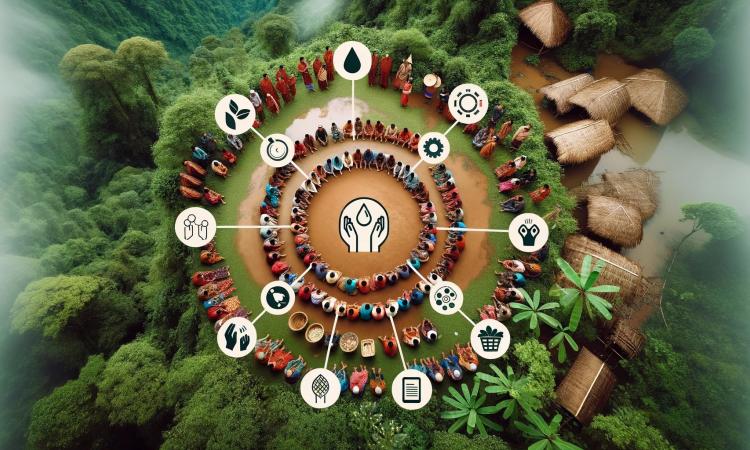
What do forests, air, and groundwater have in common?
These resources are shared and available for everyone. But their availability becomes scarce as more people use them. These are what we call common pool resources. A few pursuing their self-centred motives might lead to over-exploitation of these resources, reducing their availability to everyone. Take a beach, for example. You and your friends can go to the beach and so can everyone else. Your going to the beach reduces the space available for everyone else.
Air and groundwater, in particular, are critical shared resources. Our access to breathable air and potable water significantly contributes to our well-being. If they are overused or exploited, there will be depletion of these resources, environmental degradation, and conflicts on a magnitude that affects everyone.
How do we manage the outcomes of overuse and exploitation?
Here is where governance comes in.
Governance refers to how organisations, societies, or systems are directed, controlled, and managed to achieve their goals. Governance is essential regarding common pool resources in communities because it ensures that resources are fairly shared and guides the resolution of challenges. These governing principles should involve protocols set by the community. The existence of and adherence to these mutually agreed-upon norms and regulations will mitigate disasters.
The Sacred Groves of Meghalaya is a remarkable example of how a community comes together and organises itself to govern common pool resources without causing environmental degradation or conflict. The coming together of people should be the essence and ethos of governing common pool resources.
Another successful way common pool resources are governed is by forming cooperatives. Cooperatives are organisations which are jointly owned and democratically controlled by their members to meet their common goals. Cooperatives have a rich legacy of collective action, social innovation, and economic empowerment.
How is something like Wikipedia, which is a digital common resource, similar to things like air and water, which are shared by everyone?
Similar to commons like air and groundwater, we experience digital commons on the internet every day.
Think of Wikipedia, Open Street Maps, and Stackoverflow. E.g Open Educational Resources (OER) consist of textbooks, videos, and courses that are freely available for anyone to use and modify. Or there are licensing systems like Creative Commons that allow creators to share their work with the public under certain conditions, promoting the open sharing of content. Open source projects like Linux, Apache, and Mozilla Firefox, allow the source code to be openly used, modified, and distributed by anyone.
While the governing principles of physical commons have laid the foundation for the governing principles of digital commons, their diminishing effect due to many people accessing them has become negligible.
Unlike the beach, one person using a website does not take away another person's ability to use the same website. It would take several hundred (or more) users accessing the same website simultaneously to cause a noticeable disruption.
This has become possible because digital infrastructures have evolved enough to make platforms available to several people through limited resources. These resources, including products we buy, services we avail, music we listen to, and food we order, are all happening through a marketplace platform.
Marketplace platforms are websites or applications used by individuals or groups for the exchange of goods and services. Platforms are built to be centralised and prioritise the interests of shareholders over those of stakeholders. Platforms, designed with a focus on shareholder interests rather than stakeholders, may prioritise short-term profits, leading to potential inequalities, lack of transparency, and the risk of exploitation. This approach may result in decisions that favour shareholders at the expense of users and workers, creating imbalances and raising ethical concerns about fairness and accountability.
Platform cooperatives offer an alternative to this centralised ecosystem. Platform Cooperatives are jointly owned and democratically governed by members, allowing them to control technological features, algorithms, job structures and production processes.
Platform Cooperatives include producer cooperatives like Stocksy and Resonate where artists own the platform, drivers.coop and Co-Rise where workers decide their hours and data platforms like MIDATA and Social.coop where stakeholders decide how their data is used. All these require large global-scale coordination and solidarity. Similar levels of coordination and solidarity are required to create platform cooperatives to manage our water commons.
What platforms do you use in your day? Do you know what coop alternatives are present for them?
/articles/how-do-your-everyday-choices-impact-worlds-resources